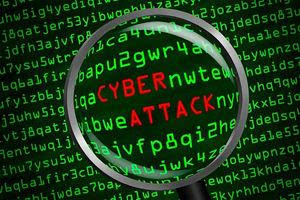With an aim to protect information and build capabilities to prevent cyberattacks, the government released the National Cyber Security Policy 2013 to safeguard both physical and business assets of the country.
"...policy is a framework document and it gives you a broad outline of what our vision is...the real task or the challenge is the operationalisation of this policy," Minister of Communications and IT Kapil Sibal said while releasing the policy here.
Sibal said the critical infrastructure such as air defence system, power infrastructure, nuclear plants, telecommunications system have to be protected otherwise it may create economic instability.
"...air defence system, power infrastructure, nuclear plants, telecommunications system will all have to be protected to ensure there is no disruption of the kind that will destabilise the economy...instability in cyber space means economic instability no nation can afford economic instability, therefore it is essential not just to have a policy but to operationalise it," Sibal said.
The cyber policy was necessary in the wake of possible attacks from state and non-state actors, corporates and terrorists as the internet world has no geographical barriers and was anonymous in nature.
The Minister said there will be multiple places from where cyberwar could take place, it will involve individuals, sections of society, businesses, terrorists, drug dealers and those who want to generate violence.
He added it will not be able to point out to a particular country to say the source of the attack because it will difficult in the cyberspace to figure it out.
"In the ultimate analysis, we have to develop global standards because there is no way that we can have a policy within the context of India which is not connected with the rest of the world because information knows no territorial boundaries," Sibal added.
He said everything today is cross border, we have to corroborate to find what is that meeting ground which allows the citizens to be empowered and at the same time ensures that nation is safe.
"We don't know who attack our systems, so we have to ourselves secure our systems," Sibal added.
In order to create a secure cyber ecosystem, the policy plans to set up a national nodal agency to coordinate all matters related to cyber security in the country with clearly defined roles and responsibilities.
It plans to establish a mechanism for sharing information, identifying and responding to cybersecurity incidents and for cooperation in restoration efforts.
"...policy is a framework document and it gives you a broad outline of what our vision is...the real task or the challenge is the operationalisation of this policy," Minister of Communications and IT Kapil Sibal said while releasing the policy here.
Sibal said the critical infrastructure such as air defence system, power infrastructure, nuclear plants, telecommunications system have to be protected otherwise it may create economic instability.
"...air defence system, power infrastructure, nuclear plants, telecommunications system will all have to be protected to ensure there is no disruption of the kind that will destabilise the economy...instability in cyber space means economic instability no nation can afford economic instability, therefore it is essential not just to have a policy but to operationalise it," Sibal said.
The cyber policy was necessary in the wake of possible attacks from state and non-state actors, corporates and terrorists as the internet world has no geographical barriers and was anonymous in nature.
The Minister said there will be multiple places from where cyberwar could take place, it will involve individuals, sections of society, businesses, terrorists, drug dealers and those who want to generate violence.
He added it will not be able to point out to a particular country to say the source of the attack because it will difficult in the cyberspace to figure it out.
"In the ultimate analysis, we have to develop global standards because there is no way that we can have a policy within the context of India which is not connected with the rest of the world because information knows no territorial boundaries," Sibal added.
He said everything today is cross border, we have to corroborate to find what is that meeting ground which allows the citizens to be empowered and at the same time ensures that nation is safe.
"We don't know who attack our systems, so we have to ourselves secure our systems," Sibal added.
In order to create a secure cyber ecosystem, the policy plans to set up a national nodal agency to coordinate all matters related to cyber security in the country with clearly defined roles and responsibilities.
It plans to establish a mechanism for sharing information, identifying and responding to cybersecurity incidents and for cooperation in restoration efforts.




0 Comments